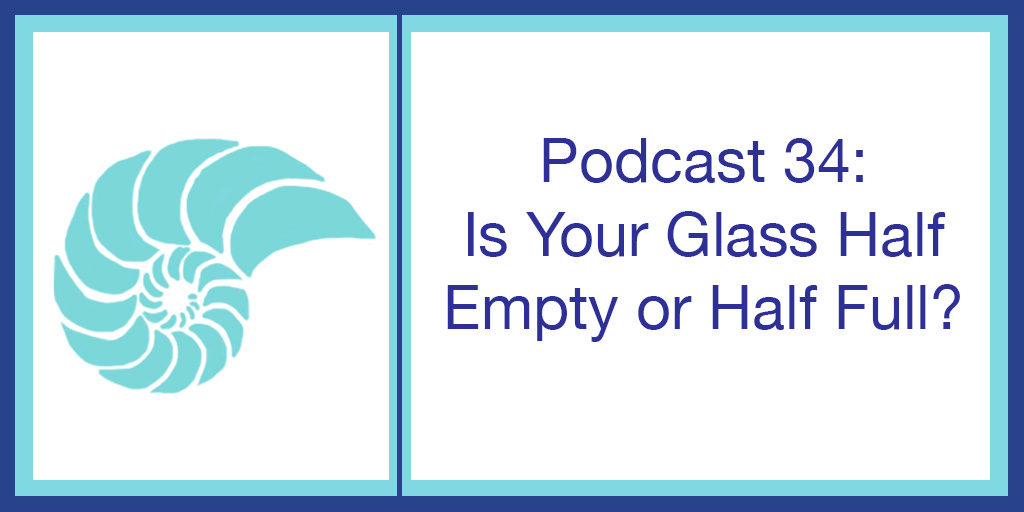Is Your Glass Half Full or Half Empty?
Today’s podcast is focused on living with joy in today’s world. How do we maintain a positive outlook, an attitude of well-being in this time of dissension and negativity in the social media stew with which we are constantly bombarded? Must we leave it all behind and not interact on social media or interact with any news programming?
Enter Positive Psychology, the scientific study of the strengths that enable individuals and communities to thrive. Martin Seligman founded this field in the 90’s on the “belief that people want to lead meaningful and fulfilling lives, to cultivate what is best within them, and to enhance their experiences of love, work, and play.” He believed that when we focus on well-being, it leads to flourishing. I call that a glass half full perspective.
Today we’re exploring the mindset that allows us to flourish and techniques to stay in that glass half full mindset. We’re talking about two of the tools in Positive Psychology: Priming and Grit.
Priming means using our environment to influence our behavior – we want to increase positives and avoid negatives. In priming, we become aware of our environment and its impact on us. We engage the sensory input of our 5 senses.
- Positive primes include
- Color –
- Light
- Music/sounds
- Smells
- Tastes
- Words
- Photos
- Spaces
- Screensavers
- We need to take control of negative primes
- News fasts
- Technology fasts
- Facebook feeds today – convergence – both technology and news overload.
- Goal Shielding
- Environments with conflicting stimuli can undermine goal accomplishment
- Implementation Intentions.
- Rewards triple likelihood of success on hard goals!
- Remove ambivalence by establishing the reward for accomplishing the goal.
- Foster good habits.
- Reframe a negative situation into a positive one.
- I am here, I want to get there. How do I make this move?
Grit is passion and perseverance in pursuit of a long-term goal. Others call it follow through, task commitment or deliberate practice, for instance the 10,000 hours rule for greatness.
Angela Duckworth, author of the book Grit, says there are five characteristics of Grit.
- Courage
- Conscientiousness: Achievement-Oriented vs. Dependable
- Long Term Goals and Endurance – Follow through
- Resilience: Optimism, confidence and Creativity
- Excellence vs. Perfection
We can build grit through the following actions.
- Being around gritty people; this is called social contagion.
- Reading biographies and sports pages
- Coaching with accountability
- Making a decision to not quit – practice intentionality.
- Remove “magical thinking” for goal accomplishment. Goals don’t magically get accomplished. Expect to work hard to reach worthwhile goals.
Grit is reflected in Paul’s words in Romans 5:3-4:
Not only so, but we also glory in our sufferings, because we know that suffering produces perseverance; perseverance, character; and character, hope.
Resources
Flourish, Martin Seligman
Grit, The Power of Passion and Perseverance, Angela Duckworth
https://www.authentichappiness.sas.upenn.edu/learn/wellbeing
http://www.scienceofpeople.com/2013/01/10-ways-color-affects-your-mood/

